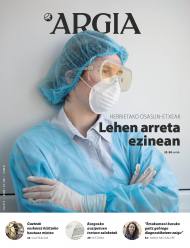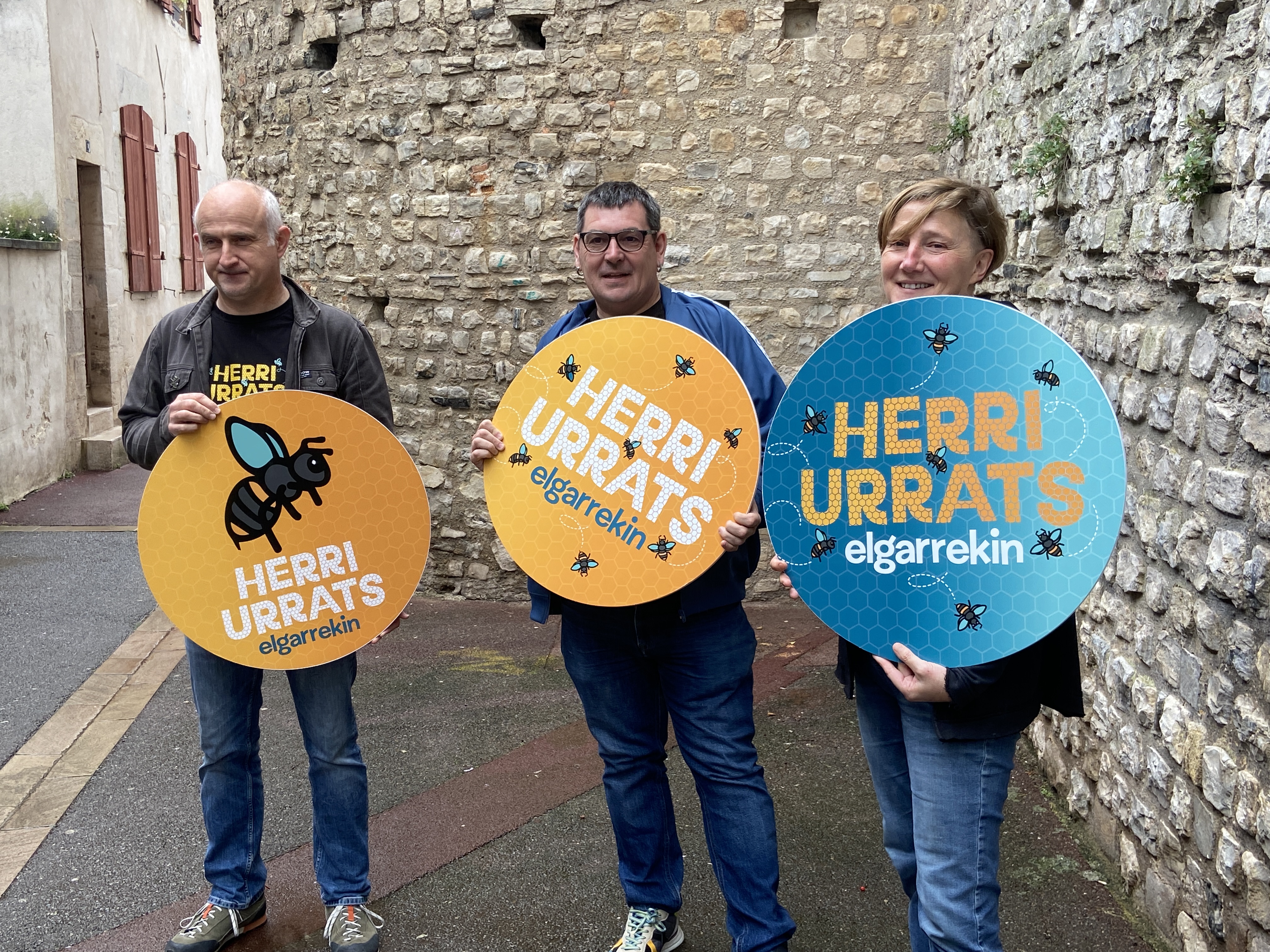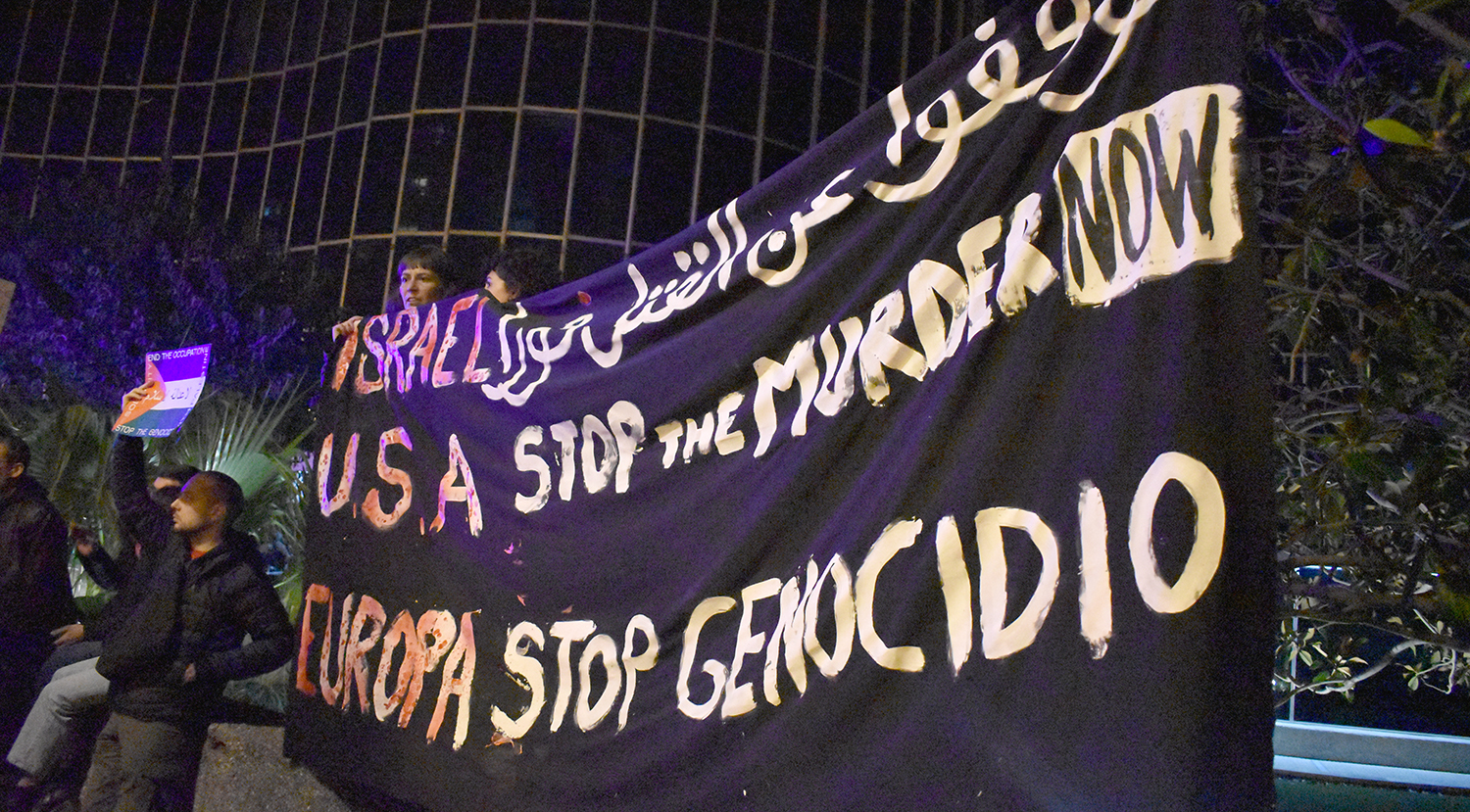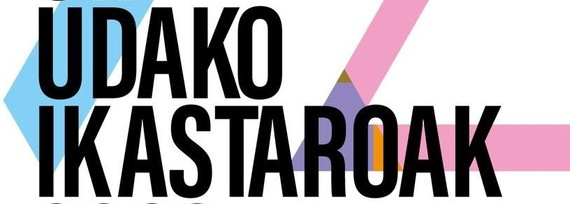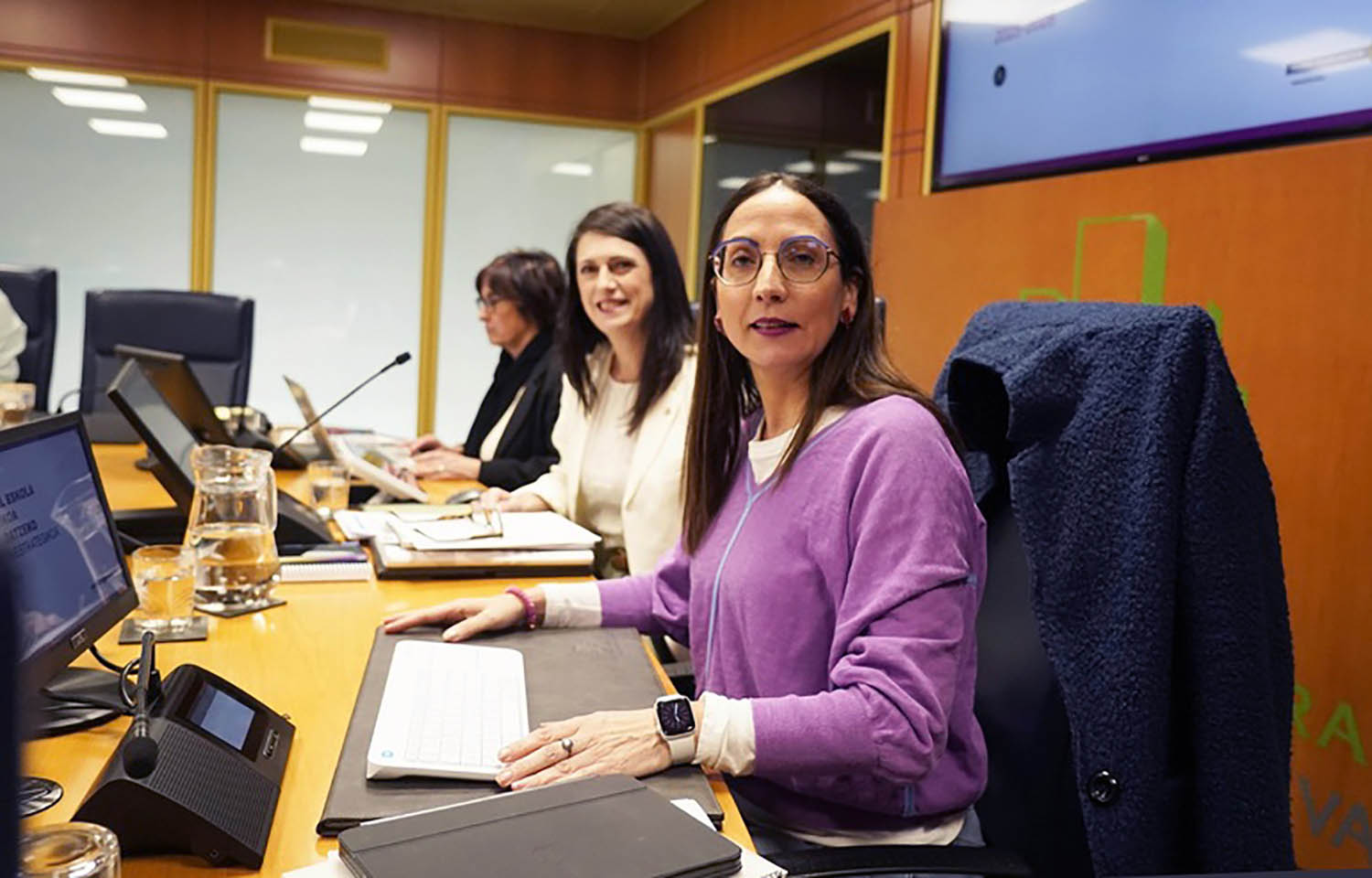"We're denied the ability to decide about our learning process."
- The Ikas platform, meeting point of the Student Self-Defense Networks, is a step in the defense of the needs and rights of high school and high school students. They say that they are infantilized, that they are using the pandemic to increase control over their students and to hinder the activity of their militant students. “They tell us that they want to educate critical students, but when we put that idea into practice they are all problems and excuses,” Maider Indart (Iruñea) and Mikel González (Durango), Bachillerato students tell us.

Does being a minor make it harder to take seriously? Is the struggle of students more complicated?
Mikel González: In our relationships with the management of the center, it is true that in this correlation of power or confrontation the fact of being a minor does not benefit us, but it is a problem that can be overcome with the work well done and that could be translated into a relationship of equal to the management one day.
Maider Indart: We are denied the ability to decide about our learning process, because we are not recognized as political subjects and treated as if we were not adults.
They infantilize…
M. Indart: That is, but when we organize ourselves to deal with the problems that we live so precisely, we show that they are not the false labels that tell us the truth: that we are irresponsible, that we are not adults… Militancy involves commitment and assumption of responsibilities. But we have an added difficulty: many times our demands are distorted by the attitudes of authoritarian professors; in the face of concrete demands, they hide real problems and act in an authoritarian way.
M. González: There are very diverse models of militancy and it is a militancy that shows maturity and has concrete reasoning and approaches behind the actions. That is the militancy that we defend.
Maider Indart: "When we organize, we see that they are not the labels that tell us the truth: that we are irresponsible, that we are not older... Because militancy involves commitment and assumption of responsibilities"
Indeed, it seems positive to see young demands and revolutionaries gathered in assemblies, discussing, reflecting… but in reality we do not want young people to be so vindictive and so revolutionary, better obedient and disciplined?
M. González: There's everything. In our center there are teachers and workers (e.g. cleaning personnel) who support us (“better if you put the poster here, for example, it will look more”) and there are also teachers and managers who want us submissive and under their mandate, who do not accept the protests.
M. Indart: They tell us they want to educate critical students, but when we put that idea into practice and make a responsible critique, it's all problems and excuses. After all, education fulfills a disciplinary function that marks a course for the future: we tend to be seven hours a day in class and then we have to work at home, we get into living habits that look at the world of work.
M. González: The question is: What is education oriented towards? When you give up that path, organize or fight, you'll be seen badly. As the system itself is structured, it leads us to accept everything; in the centers, critical attitude is not promoted nor taught, so many students do not organize themselves.
We are asking to be able to make decisions about the learning process, to participate in all decision-making bodies. Pedagogically, this is the message that we often hear: education that takes students into account. Is that not the case in reality?
M. González: On the one hand, there are the organs that determine the functioning of the centers and, on the other, those that determine the educational system. As far as schools are concerned, students in general have the possibility to intervene, but the problem comes from the high positions that the education system decides, which are aimed at educating the workers who are going to sell their workforce to the labour market, which only drives the learning processes that they are interested in. In Zornotza, for example, Vocational Training students of various cycles have had to suspend their studies, since money has been allocated to industrial and computer cycles, leaving aside social and artistic aspects.
M. Indart: In schools, we also have no real chance of making decisions about our learning process, because there are bodies in which students are represented, but in a very limited way, and perhaps we can make our opinion public, but that opinion does not have to influence, we are ultimately subject to the decisions of teachers and directors. The protagonists of education are the students, it would be logical to recognize the decision-making capacity, but as an institution education is irrational, because it does not take into account the students, and even the silences. That is why we believe that the real way to achieve control and improvement of our studies is the organization of students.
Among the things you want to decide, is for students to decide on the content that they will be working on during the course. It seems hard, closed resumes come from the top. Is there anything worth it?
M. Indart: In line with the previous answer, we believe that we are going to acquire capacities from unity and solidarity to combat the real conditions. That is to say, Ikas has just been born and we know that we are not going to get all the points in our program from day to day, but the intention is that in the long term, fighting, gaining experience and with the strength of the team, we can also make decisions about the content.
M. González: And once the union of working students has reached a solid base, we could take one more step: we have to bear in mind that the content given in secondary education is oriented towards selectivity, especially in the Baccalaureate, so the final objective is to eliminate selectivity, to propose otherwise access to university.
Mikel González: "The measures being taken come to stay and are taking advantage of the pandemic to make the students even more controlled and submissive."
You have stressed the strength of the group. The students' unit is one of the pillars of Ikase.
M. Indart: An example: a couple of courses ago we started the fight for the withdrawal of the chambers of a college in Pamplona. They were placed unannounced and hidden in the middle of the summer, and it is no coincidence, they were placed in a school in the Chantrea neighborhood, in a working-class neighborhood. There were problems to talk and meet with the management, they were setting the course, and it was decided to centralize the forces: a national demonstration was convened in Pamplona, many students from Euskal Herria came, and as a consequence of this mobilization we managed to remove the cameras.
M. González: It is organised as a learning network that allows concrete problems to be faced with the struggle of the school or the region, and provides national protection when a more powerful response is needed.
You mentioned cameras. From Ikasenpresa, we denounce that the pandemic is being used to expand the tools of social control and neutralize the resources that you have to respond.
M. Indart: Meeting, concentrating, making talks and workshops... place many obstacles, arguing that the forums and distances are not fulfilled, we are not even allowed space to meet, but then in class we meet 30 people without respecting the spaces and with little sanitary guarantees. It is clear that they have used the pandemic to limit trade union and political work and have found a good excuse for violating our rights.
M. González: It is something that is happening in society in general, because many of the measures they have taken are not health measures, but measures in favour of their interests, in order to further enrich senior officials. The social control of workers is being tough, as is the control of students. If it were something transitional, we would understand it in part, but the measures being taken come to stay and the pandemic is being used to make the students even more controlled and submissive.
M. Indart: Virtual platforms have gained strength in the pandemic (Alexia, Educa, E-Inika) and control over duties, assistance… is being tightened.
M. González: Yes, because everything is recorded and although the teachers say that the objective is to use less paper, the function of these platforms is to reach any parent that makes the students. Given that Baccalaureate is no longer a compulsory education and that we are between 17 and 18 years old, these situations are out of place, we should have the right not to attend a certain class if we do not see it necessary.
They also claim that the pandemic has worsened the quality of education, that the conditions of educational institutions are not adequate to deal with this health crisis.
M. González: We're looking at day-to-day, for example, how we're focused on the classroom, because the use of the mask is what they have, instead of coming up with solutions, wide and open spaces. From Ikasetik we have launched surveys in different counties in order to collect the testimonies of the students and, once the most serious problems have been identified, to face them.
M. Indart: In these testimonies we have seen that the generalized problem is the difficulty that the students confined to follow the classes from home. It was known that we would be more or less confined to this course, that resources would be needed, but that is how we are. In addition, there is a great lack of information.
You demand educational centers without aggression. Students often come from oppression and harassment of other students, how to manage the topic?
M. Indart: We see two types of aggressions: those that we receive from teachers and managers (such infantilization, machistan or humiliating comments…) and those that occur among students. Our relations are the reflection of society and that is why we must build a different social model; a centre free from aggression cannot be built within this system, because society is strong and not healthy, based on a model of capitalist relations (for example, permanent competition between us is promoted). Having said that, we must work on the nature of our relations and protect the oppressed in cases of harassment, of course, by weaving the solidarity of working students.
M. González: That being the ideal, breaking the capitalist system, we have to act in the short term to deal with cases of harassment, and it is not easy. We try to work in training, lectures and workshops, for example through the Public Schools, or around specific days (e.g. 25 November).
.jpg)
We have had to endure another attack on our language by the Department of Education of the Government of Navarre; we have been forced to make an anti-Basque change in the PAI program. In recent years, by law, new Model D schools have had to introduce the PAI program and have had... [+]
Public education teachers have the need and the right to update and improve the work agreement that has not been renewed in fifteen years. For this, we should be immersed in a real negotiation, but the reality is deplorable. In a negotiation, the agreement of all parties must be... [+]
Garai kuriosoak bizi ditugu eta bizi gaituzte, zinez. Hezkuntza krisian dela dioten garaiak dira eta, gutxien-gutxienean, aliritzira, ba aizue, 2.361 urte ditu gaurgero boladatxoak.
Ez zen ba debalde joan Aristoteles bere maisu maite Platonen akademiatik lizeo bat muntatzeko... [+]
Lehengai anitzekin papera egitea dute urteroko erronka Tolosako Lanbide Heziketako Institutuko kimika industrialeko ikasleek: platano azalekin, orburuekin, lastoarekin, iratzearekin nahiz bakero zaharrekin egin dituzte probak azken urteotan. Aurtengoan, pilota eskoletan kiloka... [+]









